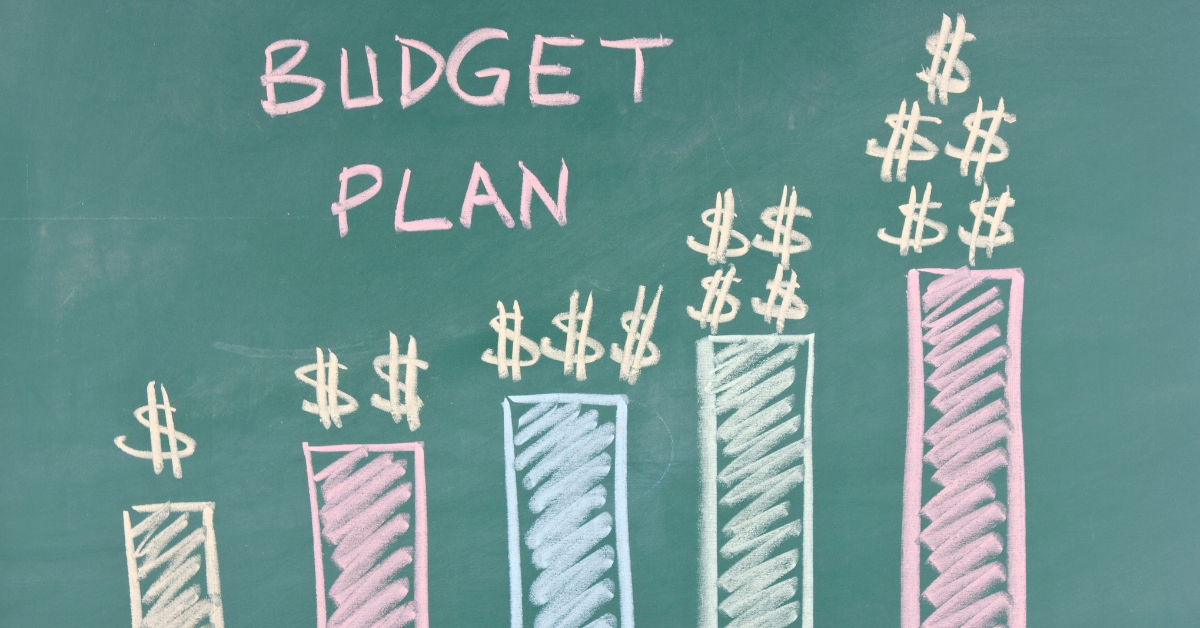Managing your finances effectively is essential, regardless of the amount of income you have. Budgeting allows you to take control of your money, make informed decisions, and achieve financial stability. This article aims to provide comprehensive guidance on how to budget with $1000 a month, helping you maximize your income, prioritize expenses, save for the future, and avoid debt traps.
- Assess Your Financial Situation: Begin by assessing your current financial situation. Take into account your monthly income of $1000 and any additional sources of income. Evaluate your fixed expenses, such as rent, utilities, transportation costs, and loan payments. This analysis will provide you with a clearer picture of your financial obligations.
- Prioritize Essential Expenses: When working with a limited budget, it’s crucial to prioritize essential expenses. These typically include housing, utilities, food, transportation, and healthcare. Allocate a portion of your income to cover these necessities before considering discretionary spending.
- Create a Detailed Budget Plan: Developing a detailed budget plan will help you allocate your $1000 effectively. Start by listing your essential expenses and their estimated costs. Be realistic and consider any potential fluctuations in expenses from month to month. Then, allocate a portion of your income for each category, leaving room for savings and unexpected expenses.
- Reduce Discretionary Spending: To make the most of your $1000, it’s important to minimize discretionary spending. Analyze your non-essential expenses, such as dining out, entertainment, and shopping. Look for areas where you can cut back without compromising your quality of life. Consider packing lunches, exploring free or low-cost entertainment options, and buying essential items on sale or in bulk.
- Embrace Frugality: Embracing a frugal lifestyle can significantly impact your budget. Look for ways to reduce costs in various areas of your life. For example, consider using public transportation, carpooling, or cycling instead of relying on expensive transportation methods. Opt for generic brands, take advantage of discounts, and compare prices before making purchases. Small changes can add up and make a significant difference in your overall financial well-being.
- Build an Emergency Fund: Even with a limited budget, it’s crucial to prioritize building an emergency fund. Aim to set aside a portion of your income each month, however small, to establish a safety net. Start with an achievable goal, such as saving $500 or one month’s worth of expenses. Over time, gradually increase the amount until you reach three to six months’ worth of living expenses.
- Minimize Debt: Debt can be a major obstacle to financial stability. If you have outstanding debts, prioritize paying them off as quickly as possible. Focus on high-interest debts first while making minimum payments on others. Consider negotiating lower interest rates or seeking professional advice to manage your debt effectively.
- Seek Additional Sources of Income: While budgeting with $1000 a month can be challenging, exploring additional sources of income can help ease financial strain. Look for part-time or freelance opportunities that align with your skills and interests. Utilize online platforms that offer gig work or consider turning your hobbies into small businesses. Even a modest increase in income can make a significant impact on your budget.
- Track and Adjust: Once you have created your budget, track your expenses diligently. Use budgeting apps or spreadsheets to monitor your spending and ensure you stay within the allocated amounts. Regularly review your budget, identify areas of improvement, and make necessary adjustments to accommodate changing circumstances.
- Seek Financial Education: Educate yourself about personal finance to improve your budgeting skills and make informed decisions. Read books, follow reputable financial blogs, listen to podcasts, or attend workshops on budgeting, saving, and investing. Understanding the principles of money management will empower you to make better financial choices and optimize your budget effectively.
- Utilize Available Resources: Take advantage of resources that can assist you in budgeting with $1000 a month. Many online tools and apps offer budgeting templates, expense tracking features, and financial planning calculators. Explore government assistance programs or local community resources that may provide additional support for essential needs.
- Focus on Long-Term Goals: While budgeting with a limited income, it’s crucial to keep your long-term goals in mind. Whether it’s saving for education, purchasing a home, or planning for retirement, establish clear objectives and allocate a portion of your income towards them. Even small contributions can make a difference over time.
- Stay Motivated and Stay Positive: Budgeting with $1000 a month may require discipline and sacrifices, but it’s important to stay motivated and maintain a positive mindset. Celebrate small victories, reward yourself occasionally, and remind yourself of the progress you’re making towards your financial goals. Surround yourself with supportive individuals who share similar values and financial aspirations.
- Adapt and Evolve: Remember that your budget is not set in stone. As your income, expenses, and financial goals change, be prepared to adapt and evolve your budget accordingly. Regularly review and adjust your budget plan to reflect your current circumstances and priorities.
- Seek Professional Advice: If you find budgeting with $1000 a month overwhelming or you need guidance to manage your finances effectively, consider seeking professional advice. Financial advisors or credit counseling services can provide personalized strategies to help you make the most of your income and achieve your financial goals.
Conclusion: Budgeting with $1000 a month requires careful planning, prioritization, and discipline. By assessing your financial situation, creating a detailed budget plan, minimizing discretionary spending, building an emergency fund, and seeking additional sources of income, you can navigate the challenges and achieve financial stability. Remember to stay motivated, adapt your budget as needed, and seek assistance when necessary. With diligence and perseverance, you can make the most of your income and pave the way for a brighter financial future.










